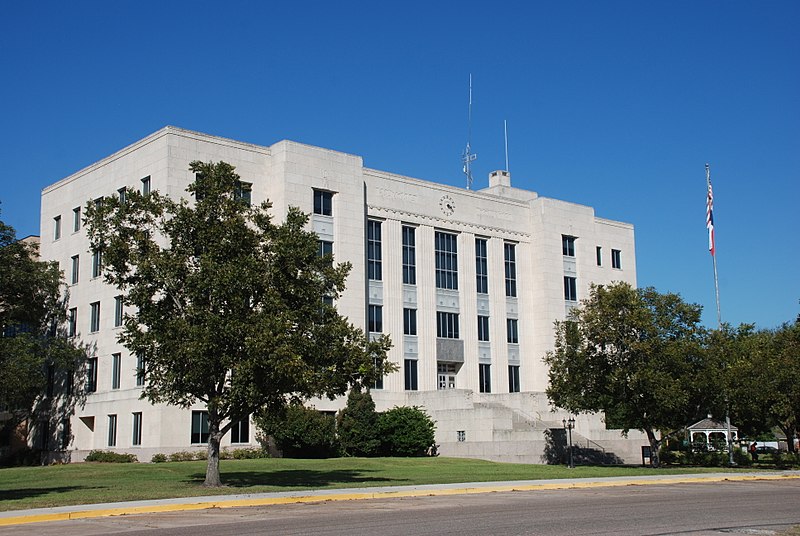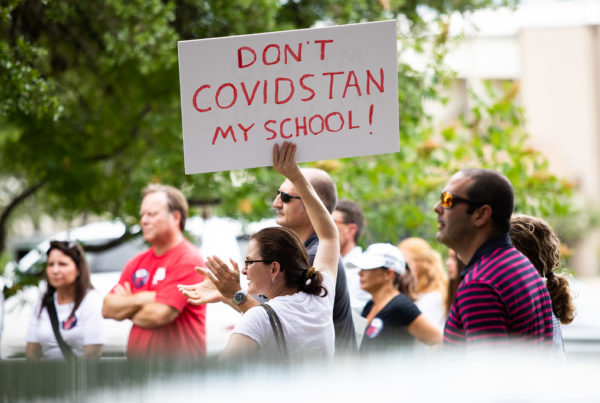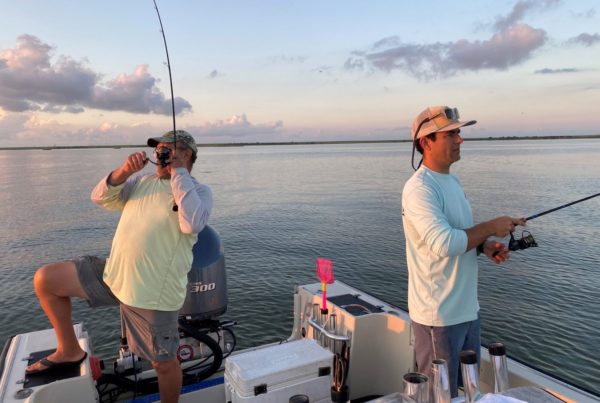Juries are supposed to be randomly selected in Texas. To do otherwise is illegal. But in Brazoria County, the recently retired district clerk, Rhonda Barchak, sorted potential jurors differently, says Michael Hardy, a freelance journalist from Houston.
Hardy investigated her methods, which could affect thousands of court verdicts in the county, in a recent Texas Monthly article.
Listen to the interview with Hardy above or read the transcript below to learn more about how Barchak’s colleagues and county officials knew about her practice for years and didn’t protest.
This interview has been edited lightly for clarity.
Texas Standard: This story centers around a district clerk who is in office for about a decade and Brazoria County. She resigned this past August. Who is Rhonda Barchak and what was she doing as district clerk?
Michael Hardy: Rhonda Barchak was the district clerk in Brazoria County since 2010. It’s an elected position; she’s a Republican. And what she was doing for at least the past six years, possibly longer, is operating what everyone has told me is an almost certainly illegal system for selecting juries. She would take juror cards into the back room of the county courthouse, divide them into Pearland and non-Pearland residents, and then divide those cards into white and nonwhite residents. So, she was subdividing first by geographical region and then by race.
What was the idea behind, first, splitting jurors from Pearland, and and then what was her intent when it came to separating potential jurors by race?
What Ms. Barchak’s attorney, Chip Lewis, told me is that she was attempting to ensure what he called “a representative cross-section of Brazoria County.” Brazoria County is a majority-minority county. It’s 59% percent nonwhite, and Pearland is the largest city. So he argued that she was just trying to make sure that there were enough people from other parts of the county, and enough white people on the jury to accurately reflect the county.
You spoke with a number of officials from other counties about how they select juries. What did they think of this process in Brazoria County?
None of them had heard of any system like this. In fact, no legal expert I spoke to had ever heard of any system like this anywhere in the United States. It’s almost certainly illegal. It’s certainly highly unusual. They are supposed to be selected randomly. The Texas Code of Criminal Procedure specifies that district clerks must randomize the jury panels, but Ms. Barchak evidently did not know that or went against that.
One would think, given how long she was in office, that this must have gone on for some time. Did other officials know that she was doing this, that she was separating Pearland residents and then further subdividing by race?
Ms. Barchak’s attorney told me that dozens of county officials did know and had no problem with it. That includes judges, county officials, prosecutors.
So what’s next? You wrote in your article that the Texas Rangers’ Public Integrity Unit is investigating these claims, is that correct?
They are. They’re the unit charged by the state with investigating corrupt public officials. Their investigation will be finished by the end of the month. But in the meantime, at least one defendant who was recently convicted of murder is requesting a new trial. This is an African American man tried by an all-white jury. He’s claiming that he was convicted unfairly and is demanding a new trial.
What happens if they find that thousands of juries in the county were put together illegally?
It’s unclear. Potentially thousands of new trials could be ordered, cases could be dismissed, verdicts could be overturned. And the county could be sued by people claiming that they wrongfully had their children taken away in family court, or that they had verdicts go against them in civil court.















